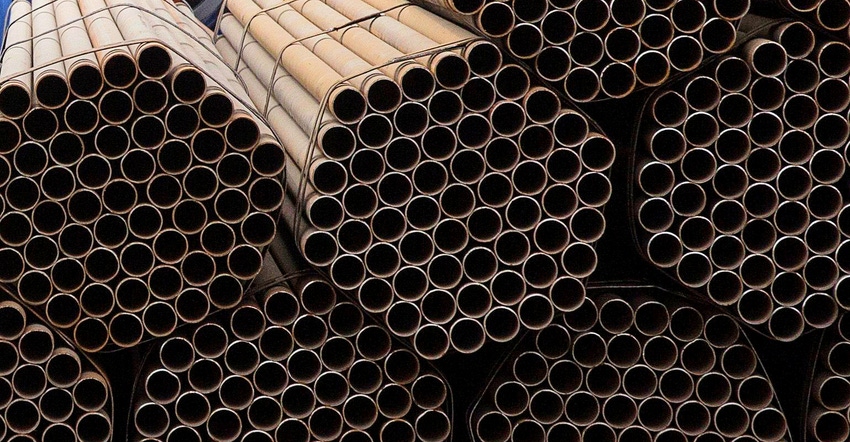January 16, 2018

Last week U.S. Wheat Associates issued a warning as a reaction to a Department of Commerce announcement regarding steel trade. Commerce submitted the results of a Section 232 investigation of the national security implications of steel imports. The investigation was done at the prodding of a large part of the U.S. steel industry, but the investigation and its potential results "likely ignore the disastrous implications for other U.S. sectors from extreme trade protections for commodity traded steel," USW stated.
USW noted that the World Trade Organization national security exception from normal trade rules has traditionally been narrowly defined for "truly exceptional products deemed necessary to maintain essential security interests." The group noted that the cautious approach, respected by most countries, could be undermined if this type of restriction for a commonly traded product like steel was included.
USW, concerned about how this move could impact commodity trade, noted that global trade rules pioneered by the United States after World War II were designed to avoid the types of protectionist trade policies that exacerbated tensions leading to that global conflict. Since national security exceptions are self-declared and unenforceable, the U.S. using that exception as a loophole "could lead to a major breach in the system of global trade rules with unpredictable consequences," USW stated.
The group stated that it believes "that there is no greater national security interest for a country than being able to feed its people, which is best achieved through open markets. If the United States restricts steel imports under a national security claim, some countries may use the same pretense to restrict imports of U.S. wheat and other agricultural products."
Vince Peterson, USW president, noted that while the group doesn't know the contents of Commerce's recommendations to President Trump, "if they're anything like what the steel industry has proposed, we hope the President will do the right thing and reject it. Under the pretense of asking for fair trade, the steel industry is looking for sweeping protection, and that threatens to undermine the global trade rules that have helped keep our country secure and our farmers competitive."
Mike Miller, USW chairman, explained that the domestic steel industry already has more protection in place than any other industry so "there is no reason to blow up trade rules to restrict imported steel." Miller is a Ritzville, Wash., farmer and he noted that as a farmer "I know that I always have to work hard to stay competitive; if steel companies can’t do that with dozens of trade remedies already in place, maybe they should look for solutions that address the real problems instead of just restricting trade."
You can read USW's reaction to the Commerce statement here.
Source: U.S. Wheat Associates
You May Also Like




